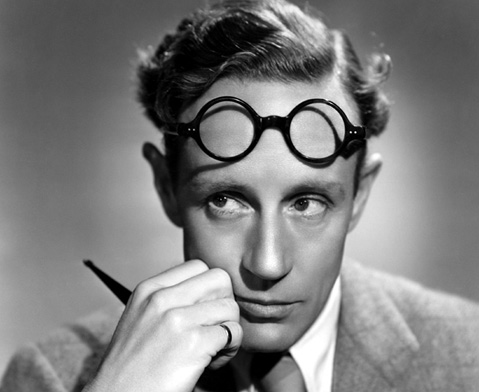When a Star Flamed Out
The Mysteries Behind Leslie Howard's Wartime Death

LESLIE HOWARD: On October 18, 1939, an expectant audience filed into the Granada Theatre, unsure what they were about to see. It was a sneak preview, common in those days of testing movies before general release. But when the projector flooded the screen with action, it turned out to be the year’s most highly anticipated movie, Gone with the Wind.

There on the screen, bigger than life, were images of Vivien Leigh (as Scarlett O’Hara), Clark Gable (as Rhett Butler), and the famous British actor Leslie Howard, uncomfortably playing Ashley Wilkes and wishing he wasn’t. And less than four years later, 50-year-old Howard wasn’t — that is, wasn’t alive.
On June 1, 1943, Howard boarded BOAC flight 777A, leaving Lisbon, then spy capital of Europe. Soon after the plane took off at 9:30 a.m., the pilot radioed that they had been spotted by a German fighter plane.
In minutes, the unarmed plane plunged into the sea, taking Howard and its other passengers with it. No one survived. Was it just one of those unlucky twists of fate in war, or did the Germans mistakenly think that British Prime Minister Winston Churchill was aboard? The mystery remains unsolved to this day.
Faced with the role of Ashley Wilkes, Howard, known for playing vague English gentlemen with spines of steel, felt he was too old to play the object of young Scarlett’s romantic yearnings. And he railed against “the abominable Ashley, a dreadful milksop, totally spineless.” Producer David Selznick had considered others, including Humphrey Bogart, certainly an odd choice, but finally Howard took the role.
Then with England at war, the British sent Howard on a 1943 lecture tour of neutral Spain and Portugal. England was in a crucial tug-of-war, hoping to keep them neutral, just as Germany wanted them as allies. According to the 2011 book Lisbon, by Neill Lochery, Howard was very anxious to get back to London. He arrived at the Lisbon airport with his agent, Alfred Chenhalls, on May 31, hoping to persuade two other passengers to give up seats. No dice.
Lisbon, aside from being a nest of spies, was a prized route to freedom in London, and the U.S. A plane ticket was a treasured possession, along with a hard-to-get exit visa. Lisbon was jammed with people fleeing German-occupied nations, Jews desperate to avoid Nazi clutches, and all manner of others, including spies heading for London and Allied air crews who’d been secretly sent to safety after being shot down.
But the next morning, Howard and Chenhalls successfully got seats.
Churchill believed that it was a case of mistaken identity. The story goes that a German secret agent working at the airport apparently mistook the portly, cigar-smoking Chenhalls for Churchill and Howard for his aide.
“Churchill wrote that the tragedy much distressed him,” according to Lochery. “He was amazed, not by the brutality of the Germans ordering one of their aircraft to shoot down the defenseless aircraft but rather the stupidity of the German agents in Lisbon.
“The prime minister wondered how the Germans could think that, with all the resources at his disposal, he would have booked passage on an unarmed and unescorted plane that was due to fly home in broad daylight.”
Lochery also writes of another scenario, that the Allies learned through the top-secret Enigma code-breaking machine that the plane were targeted but feared that if the flight was canceled, it would tip off the Germans that their messages were being intercepted.
Or maybe Howard’s death was just bad luck. We’ll never know for sure.
The downing of Howard’s plane embarrassed pro-German Portuguese dictator António de Oliveira Salazar. A week after the disaster, he issued a decree making spying illegal. But that hardly put a crimp in the wholesale espionage by both sides of the war.
Gone with the Wind remains a classic. Leslie Howard is largely forgotten, and few know how he made his last curtain call.
LOVE AND PAIN: In Ensemble Theatre Company’s beautifully acted Intimate Apparel, hope, heartbreak, and then hope mingle like lingerie in a woman’s drawer. My heart went out to Esther, played by Karole Foreman. Shows through February 22 at the New Vic.
OBOE OUT FRONT: Most of us are used to hearing the oboe more or less hidden away in the midst of an orchestra, but Nicholas Daniel brought its sweet tones out front in a Camerata Pacifica solo of Benjamin Britten’s Six Metamorphoses After Ovid last Friday at Hahn Hall.



